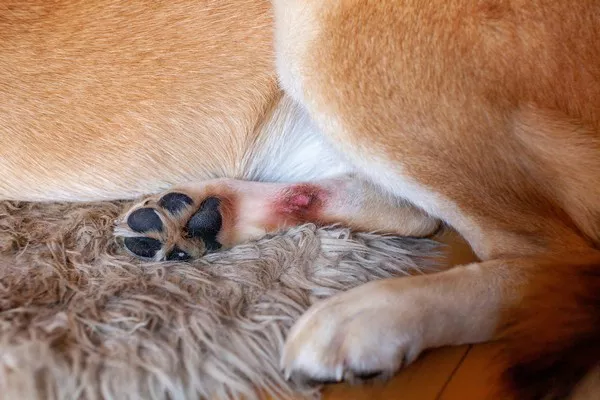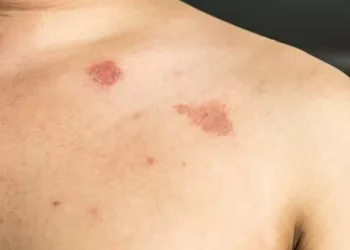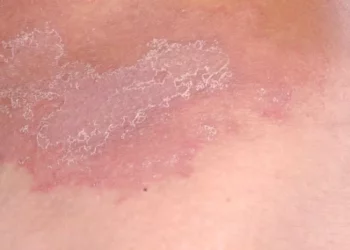Ringworm is a common fungal infection that can affect both humans and animals, including puppies. Despite its name, ringworm is not caused by a worm but by a fungus. The condition is often identified by circular patches of hair loss, red, scaly skin, and itching. If you are a puppy owner, it’s essential to understand how puppies get ringworm so you can take the necessary steps to protect them and prevent it from spreading.
In this article, we will dive deep into how puppies contract ringworm, what the signs of infection are, how it is diagnosed, and what treatment options are available.
What Is Ringworm?
Ringworm, also known as dermatophytosis, is a fungal infection that affects the skin, hair, and nails. The condition is caused by various species of fungi, mainly from the Microsporum and Trichophyton genera. These fungi thrive in warm, moist environments and can spread easily through direct contact or contaminated objects.
While ringworm is often associated with cats and humans, puppies can also develop this infection. Puppies have more sensitive immune systems and may be more susceptible to fungal infections compared to adult dogs.
How Do Puppies Get Ringworm?
Ringworm is highly contagious, and puppies can get it from various sources. Understanding these sources can help you minimize the risk of your puppy contracting the infection.
1. Contact with Infected Animals
One of the most common ways puppies get ringworm is through direct contact with an infected animal. This can happen if a puppy plays with or is around another dog, cat, or animal that is infected with the fungus. Animals with ringworm may not always show visible signs of the infection, which can make it harder to identify an infected pet.
When puppies come into contact with an infected animal, the fungal spores can transfer to their fur, skin, or paws. The spores can then settle on the puppy’s skin and cause an infection.
2. Contact with Contaminated Objects
Ringworm spores can survive on surfaces and objects for long periods, making it easy for puppies to contract the infection indirectly. Contaminated items, such as bedding, grooming tools, toys, food and water bowls, or even the floors of a kennel, can harbor the fungus.
If your puppy comes into contact with these items, the fungal spores can transfer to their skin. This is especially likely in environments where multiple animals are kept together, such as boarding facilities or shelters.
3. Exposure to Fungal Spores in the Environment
In some cases, puppies may come into contact with ringworm spores present in the environment. The spores can be found in soil, dust, or decaying organic matter, particularly in areas where other infected animals have been. Fungal spores can be carried by the wind or transferred by people, pets, or animals, which makes it difficult to prevent exposure.
In warm, humid climates, the spores can thrive in outdoor environments, especially in areas where many animals congregate. For example, if a puppy explores an area frequented by stray or infected animals, it could potentially be exposed to ringworm spores in the soil or on surfaces.
4. Weakened Immune System
Puppies have developing immune systems that are not as strong as those of adult dogs. As a result, they are more susceptible to infections, including fungal ones like ringworm. Puppies that are very young, sick, or stressed are particularly vulnerable.
Some factors that can weaken a puppy’s immune system include:
- Poor nutrition
- Stress
- Underlying health conditions
- Lack of proper vaccinations
When a puppy’s immune system is compromised, it is more likely to develop ringworm after exposure to the fungal spores.
What Are the Symptoms of Ringworm in Puppies?
The symptoms of ringworm in puppies can vary depending on the severity of the infection. However, there are some common signs to watch for. If you notice any of these symptoms, it’s important to take your puppy to a veterinarian for an accurate diagnosis.
1. Circular Patches of Hair Loss
One of the first signs of ringworm in puppies is the appearance of circular patches of hair loss. These patches usually have a red, scaly border and may start small but can enlarge over time. The fur around the patch may appear broken, and the skin may become inflamed.
2. Itching and Scratching
Ringworm can cause itching and discomfort for your puppy. You may notice that your puppy is scratching or licking the affected areas more than usual. Constant scratching can lead to further irritation, making the infection worse.
3. Red, Scaly, or Crusty Skin
The skin around the infected area may become red, inflamed, and scaly. In severe cases, it can form crusts or scabs. The areas that are affected may be moist or dry, depending on the type of infection.
4. Pustules or Blisters
In some cases, puppies with ringworm may develop pustules (small, pus-filled blisters) around the infection sites. These pustules can burst, leading to further infection or irritation.
5. Nail Infection
While ringworm commonly affects the skin and hair, it can also infect the nails. If the infection affects the nails, they may become brittle, thickened, or discolored. This can lead to difficulty in walking, as the puppy may experience pain or discomfort when standing or walking.
How Is Ringworm Diagnosed in Puppies?
If you suspect that your puppy has ringworm, it’s essential to get a proper diagnosis from a veterinarian. While the symptoms are telling, a vet will use several diagnostic tools to confirm the presence of the fungal infection.
1. Physical Examination
The vet will start by conducting a thorough physical examination of your puppy. They will check for the characteristic circular patches of hair loss and other symptoms associated with ringworm. A detailed history of the puppy’s environment and any possible exposure to other animals or contaminated surfaces will also be helpful.
2. Wood’s Lamp Examination
A Wood’s lamp is a special ultraviolet light that can help detect certain types of fungi. Under the light, ringworm-infected hairs may fluoresce, giving the vet a clue about the infection. However, not all types of ringworm will glow under a Wood’s lamp, so this test is not always conclusive.
3. Microscopic Examination
To confirm the presence of the fungal spores, a vet may take a hair sample or a small scrap of skin from the affected area and examine it under a microscope. The vet will look for fungal spores and hyphae (the branching filaments of the fungus) in the sample.
4. Fungal Culture
In some cases, the vet may take a sample of the infected area and send it to a laboratory for fungal culture. This method can take a few days to a week for results, but it provides a definitive diagnosis.
Treatment Options for Ringworm in Puppies
Ringworm is treatable, and with the right approach, most puppies recover fully. However, treatment can take time and requires consistency. The goal of treatment is to eliminate the fungus and prevent it from spreading to other pets or humans.
1. Antifungal Medications
The most common treatment for ringworm in puppies involves antifungal medications. These can be administered topically (directly on the skin) or orally (in the form of tablets or liquids).
Topical antifungal creams or shampoos: These treatments are applied directly to the affected areas. They can help kill the fungus on the skin and reduce the spread of spores.
Oral antifungal medications: In more severe cases, the vet may prescribe oral antifungal medications, such as terbinafine or griseofulvin. These medications are usually given for several weeks and can help to treat deep infections or widespread cases of ringworm.
2. Cleaning and Disinfecting the Environment
Since ringworm spores can survive on surfaces for extended periods, it is crucial to disinfect your home and your puppy’s environment. Clean bedding, toys, grooming tools, and anything else your puppy has come into contact with. Use antifungal disinfectants to reduce the risk of reinfection.
3. Isolating the Puppy
To prevent the spread of the infection to other pets or people in the household, it’s essential to isolate the infected puppy. Keep the puppy in a separate area, and avoid contact with other animals until the infection has been treated and cleared.
4. Bathing Your Puppy
Regular bathing with antifungal shampoo can help to remove fungal spores from your puppy’s fur. Bathing also helps to reduce itching and discomfort. However, be sure to follow your vet’s instructions regarding how often and when to bathe your puppy, as over-bathing can irritate their sensitive skin.
5. Follow-up Care
Ringworm treatment typically lasts for several weeks. After starting treatment, you will need to bring your puppy back to the vet for follow-up appointments to ensure that the infection is clearing up. The vet may perform additional tests to confirm that the fungal infection has been eradicated.
Conclusion
Ringworm in puppies is a common but treatable condition. It can be contracted through direct contact with infected animals, contaminated objects, or environmental exposure to fungal spores. Puppies with weakened immune systems are more susceptible to ringworm infections.
If your puppy shows signs of ringworm, seek veterinary care as soon as possible. Early detection and treatment can help prevent the infection from spreading and ensure a speedy recovery. By practicing good hygiene and keeping your puppy’s environment clean, you can reduce the risk of ringworm and other fungal infections.
Related topics



























